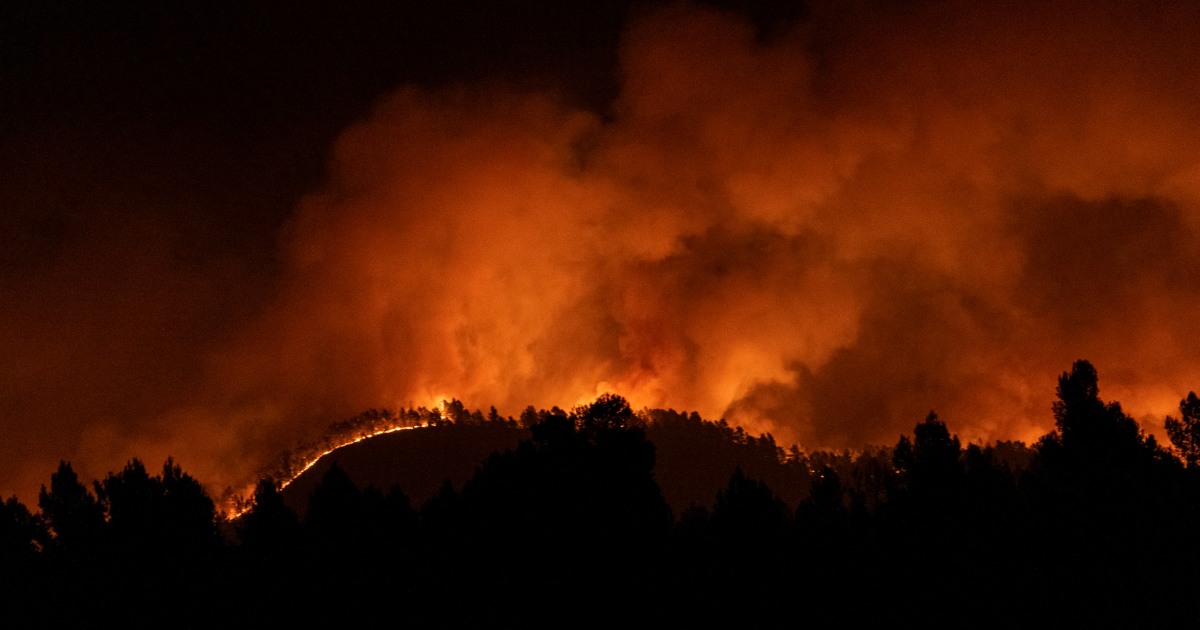Spain’s first major wildfire of the year broke out in the eastern Valencia region on Friday, destroying more than 7,413 acres of forest and forcing 1,500 residents from their homes, authorities said.
An unusually dry winter in southern parts of the European continent reduced moisture in the soil and raised fears of a repeat of what happened in 2022, when more than 1.9 million acres were destroyed in Europe, more than double the annual average. of the last 16 years, according to the statistics of the European Commission (EC).
»These fires that we are seeing, especially at the beginning of the year, are once again proof of the climate emergency that humanity is experiencing, which especially affects and plagues countries like ours,» said the President of the Spanish Government, Pedro Sánchez, to a newscast. conference in Brussels.
In Spain, 493 fires destroyed a record 758,613 acres of land last year, according to the Commission’s European Forest Fire Information System.
More than 500 firefighters supported by 18 planes and helicopters worked overnight and on Friday to put out the blaze near the town of Villanueva de Viver, in the Valencia region.
Emergency services evacuated eight communities, said Gabriela Bravo, regional head of Interior Affairs.
“We didn’t sleep well because of anxiety, wondering if our house had burned down and thinking about the animals we have,” said María Antonia Montalaz, who was evacuated from nearby Montanejos.
While firefighters believed they were managing to control the spread of the blazes, high winds and “virtually summer temperatures” could reignite them, Bravo said.
Spain is experiencing a prolonged drought after three years of below-average rainfall.
The weather will be drier and warmer than usual this spring along Spain’s northeastern Mediterranean coast, increasing the risk of forest fires, weather agency AEMET told Reuters last week.
Environment Minister Teresa Ribera said «fires out of season» were becoming more common.
«Summer is getting longer, it is coming forward and unfortunately the availability of water and humidity in the soil is reducing, making us much more vulnerable,» he told reporters in Cádiz.
A European Commission report this month noted a lack of rain and warmer-than-normal temperatures during the winter, prompting drought warnings for southern Spain, France, Ireland, Britain, northern Italy, Greece and parts of eastern Europe.
“There are many reasons to fear that this year there will also be numerous and widespread events,” said Lorenzo Ciccarese, a researcher at the Higher Institute for Environmental Protection and Research in Rome.
The winter in Greece was the warmest for its northern regions in more than a decade, according to the National Observatory of Athens.
Lack of rain and decreased soil moisture will help the spread of wildfires if there are heat waves, said Christos Zerefos, director of the Athens Academy’s Research Center for Atmospheric Physics and Climatology.
The Commission report warned that low water levels could affect strategic sectors such as agriculture, hydroelectric power and energy production.
Olive oil production in the European Union for 2022-23 will halve compared to the previous season, according to official estimates, largely due to a drop in Spain’s production caused by drought.
Dry spells have also affected production in Portugal and Italy.

